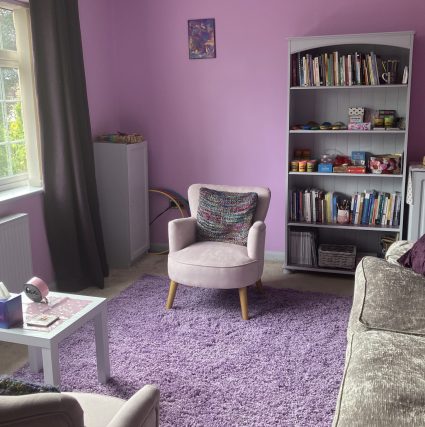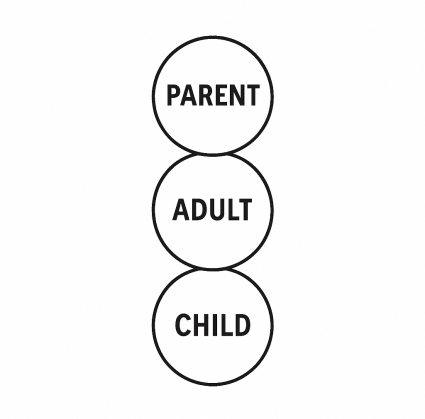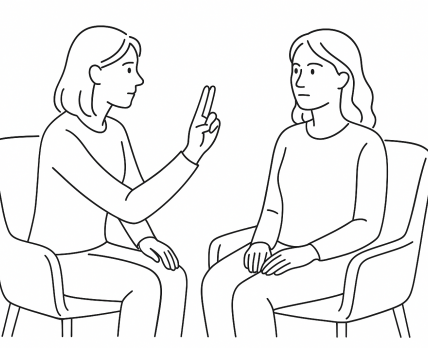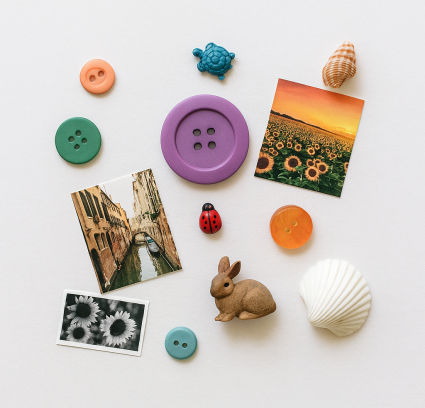How I work
I work using transactional analysis (TA). TA explores how our personalities, beliefs and automatic behaviours have been shaped by our experiences, particularly from childhood. We can identify what might be less helpful in communication and develop opportunities to change repeated unconscious patterns that may be affecting your life. I use really accessible models and language to help you understand why you have become who you are today and how you relate to other people, so you can live the life you want, rather than the life you have been programmed to live.
I also work using EMDR (Eye movement desensitisation reprocessing). This is a type of therapy that helps your brain heal from difficult or traumatic experiences. Sometimes when something overwhelming happens, the memory doesn’t get stored properly and can feel like it’s stuck, which is why you might continue to feel triggered or distressed long after the event. In EMDR, we gently activate those memories while using back-and-forth movements, like guiding your eyes or tapping, which helps the brain reprocess the experience. Over time, the memory doesn’t go away, but it usually feels less painful and more like something that happened in the past, allowing you to feel calmer and more in control in the present.
The relationship between you and me is key. I will create a non-judgmental, and respectful space where you feel comfortable talking about anything that feels important to you.

Qualifications
- M.A. in Psychotherapy (distinction)
- Postgraduate Diploma in Counselling and Psychotherapy (distinction)
- EMDR (European recognised four-part training)
- Certificate in trauma-focused therapy
- UKATA Diploma in Transactional Analysis
- UKCP Registration
- BACP Accreditation
- Postgraduate Diploma in executive coaching and mentoring

My training has taught me that relationships are significant. This includes challenges you may be facing in your relationships as a parent, child, friend, at work or at home, but also how you and I might work together

Transactional Analysis
As a training Transactional Analysis (TA) therapist, I can offer an additional approach to therapy. TA is an effective long-term, in-depth therapy; it is very versatile as it can be used in a wide range of areas. The atmosphere that supports transactional analysis is non-judgemental, secure and respectful, ensuring that a positive relationship is forged between us both in order to provide a model for subsequent relationships and communication that are developed outside of therapy. We would work collaboratively, together, identifying what has been less helpful in your communication and providing opportunities for you to change repetitive patterns that limit your potential. Sessions are designed to explore an individual's personality and how this has been shaped by experience, particularly those stemming from childhood. We might work on problem-solving behaviours, whilst helping you to develop day-to-day tools for finding constructive, creative solutions. Our ultimate goal is to ensure you regain absolute autonomy over your life.
EMDR
EMDR, which stands for Eye Movement Desensitisation and Reprocessing, is a type of therapy that helps your brain heal from difficult or traumatic experiences. Sometimes when something overwhelming happens, the memory doesn’t get stored properly and can feel like it’s stuck, which is why you might continue to feel triggered or distressed long after the event. In EMDR, we gently activate those memories while using back-and-forth movements, like guiding your eyes or tapping, which helps the brain reprocess the experience. Over time, the memory doesn’t go away, but it usually feels less painful and more like something that happened in the past, allowing you to feel calmer and more in control in the present.


Working Creatively
Sometimes it can be hard to access our feelings, if you are someone who likes to ‘do’ or ‘see’ as well as listen there are other ways I could help. I mainly work in the therapeutic way you would expect, sitting together, talking and listening, however if it was right for you we could also use other ways to help. Creative therapy uses methods such as writing, drawing, (in the loosest sense of the word) cards, natural objects such as shells and stones, and much more, to help you uncover feelings such as anxiety, sadness, hurt, fear, grief, anger and so on. Thinking with a different part of your brain can really help you when you feel stuck. It is of course your choice and we can work in the best way for you.
©2021 Peri O'Connor
powered by WebHealer Privacy Policy Cookies
